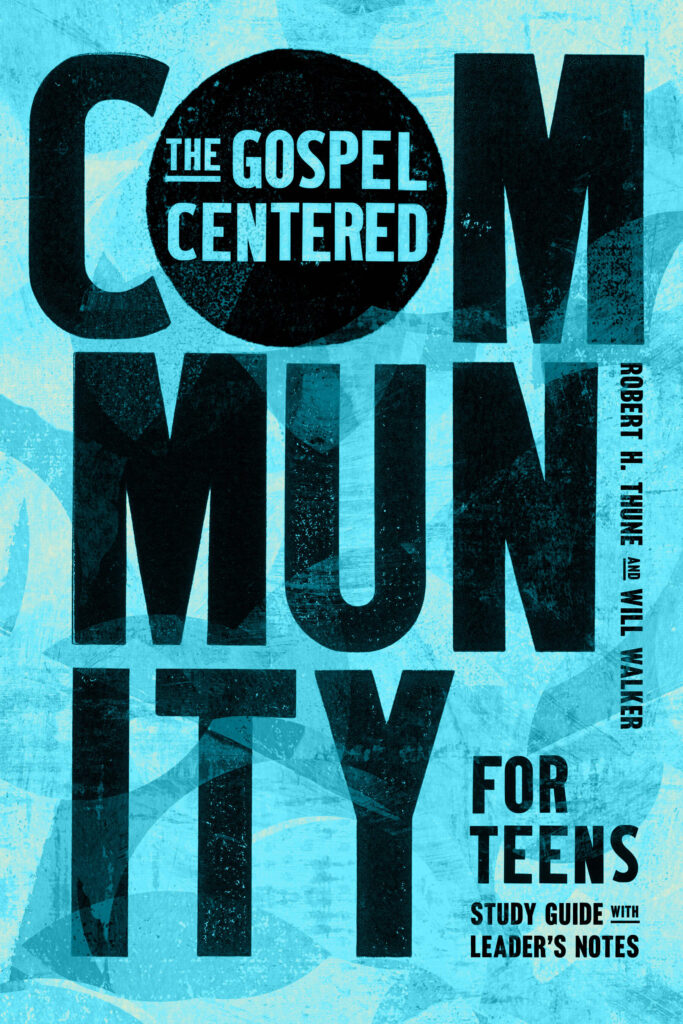A 75-year-long Harvard study found that meaningful relationships are the strongest predictor of happiness.[1] This is not surprising to Christians because the first pages of the Bible tell us we were made for relationships.
So here is the question: If we all need community, and want community, why is it so hard to come by?
The answer in Genesis 3 is that sin turns us in on ourselves. We are all looking for a community that bends to our own desires and needs, which means we all have competing visions of community.
Genesis 1 and 2 ground us in God’s vision for community. Although these chapters are about a married couple, there are principles in them that apply to any Christian community.
Community Is Essential, Not Optional
To be made in the image of God is to be made in and for community (Genesis 1:26-27). Sin separates and isolates, but Jesus reconciles and unites. This is why the church is described in communal terms: God’s family, the body of Christ, and “living stones . . . being built up as a spiritual house” (1 Peter 2:5).
Maybe you have heard someone say, “All you need is God.” That might sound appealing when it is hard to make friends or when we feel like we don’t fit in. We might tell ourselves, “All I need is God anyway.” But Genesis 2 paints a different picture.
Adam has God, and there is no barrier between him and God because there is no sin in the world. On top of that, Adam has an amazing place to live, delicious food everywhere, and an incredible job—all the things we think will make us happy. If all we really need is God, then Adam has everything he needs and more! But God says, “It is not good that the man should be alone” (Genesis 2:18). In other words, Adam was made to pursue God and God’s work in community.
Woodworkers talk about working along the grain of the wood, which brings out the natural beauty of the wood. If you cut against the grain, it is harder and it looks worse. Being in community is working along the grain of God’s design. It brings out the beauty of his wisdom and power.
Community is crucial at all stages of life, but it can be particularly hard to come by for teens. The teen years can be oddly isolating. You are around a lot of people your age, but you might not feel like anyone really knows you. It is easy to settle for surface relationships, but that is not God’s design and God’s mission. To put it plainly: We cannot be who God made us to be apart from real relationships where we are seen and known.
Community Is God-Centered, Not Self-Centered
In Genesis 1 and 2, the community is sustained and animated by God’s presence. When it comes unraveled in Genesis 3, it’s because they take their focus off God and turn in on self. That has been our bent ever since. We want community, but we want it on our terms.
When we show up to a gathering of people, we are usually thinking about ourselves: What do I get out of this? What do people think about me? Does this fit my schedule? And so on. A popular question on social media is “Does this serve me?” In conversations about time commitments, money, and relationships, people are saying the core question we should be asking ourselves is “Does this serve me?”
There may be good uses of that question, but it strikes me how opposite it is to Jesus, who said about himself, “the Son of Man came not to be served but to serve, and to give his life as a ransom for many” (Mark 10:45). And he taught his disciples to think the same way. Imagine showing up to a gathering with that mindset: What can I give to this? How can I encourage people here? What can I sacrifice for the good of others?
In some way, we all want to put ourselves at the center of our relationships, but Jesus came to deliver us from our sinful focus on self and set us free to serve one another as he has served us.
When God is at the center of our community, he enables us to stop acting “from selfish ambition or conceit, but in humility [to] count others more significant than [ourselves]” and “look not only to [our] own interests, but also to the interests of others” (Philippians 2:3–4).
Community Is Received, Not Found
We often say things like, “I just haven’t found mypeople.” I thinkwe are trying to put words to a good desire, but my basic observation in Genesis 2 is that Adam is not looking for anything. The emphasis in Genesis 2:8–18 is on what God seesandprovides: God planted, God put, God formed, God made, God took, God commanded, God said, God will make. If we think community is something we must find, we might in all our searching miss the community God has given us.
There is wisdom in making good choices about who we spend time with (Proverbs 13:20). We should not embrace the company of fools. I am thinking here about the Christian community God has given you. If you belong to a church or a youth group or a Bible study—anything like that—this is the community God has given you. Not just the circle of people that you enjoy, but all of them. I know they aren’t perfect, but neither are you. Maybe that is why there are so many commands in the New Testament that are basically about how to get along.
I love Paul’s instructions to the church in Thessalonica: “And we urge you, brothers, admonish the idle, encourage the fainthearted, help the weak, be patient with them all” (1 Thessalonians 5:14).
None of us is looking for a community that requires a lot of patience, but that it is the community God has given us. You may not be the idle, the fainthearted, and the weak, but you’re something. We are all something. Some of us are arrogant. Some of us are insecure and self-protective. Some of us talk too much. Some of us are just socially awkward. We all have issues, and given enough time, we will all be overlooked in someone’s search for the perfect community.
But God has not overlooked us. He sought us out, redeemed us, and made us part of his family. What if we stopped “looking for community” and devoted ourselves to receivingthe people God has given us? I think we would experience a depth of grace and love that surprises us.
We were made for God-centered community, and that is not something we can find on our own. It is something God gives to us in Christ. So “welcome one another other as Christ has welcomed you, for the glory of God” (Romans 15:7).
[1] Robert Waldinger and Marc Schulz, The Good Life: Lessons from the World’s Longest Scientific Study of Happiness (Simon & Schuster, 2023).
The Gospel-Centered Community for Teens
The Gospel-Centered Community for Teens by bestselling authors Robert H. Thune and Will Walker gives teenagers biblical and practical guidance for building deep friendships and being part of a community where they can grow and flourish. Teenagers will find a place to belong where people love, care for, enjoy, serve, and even challenge one another in good ways.






